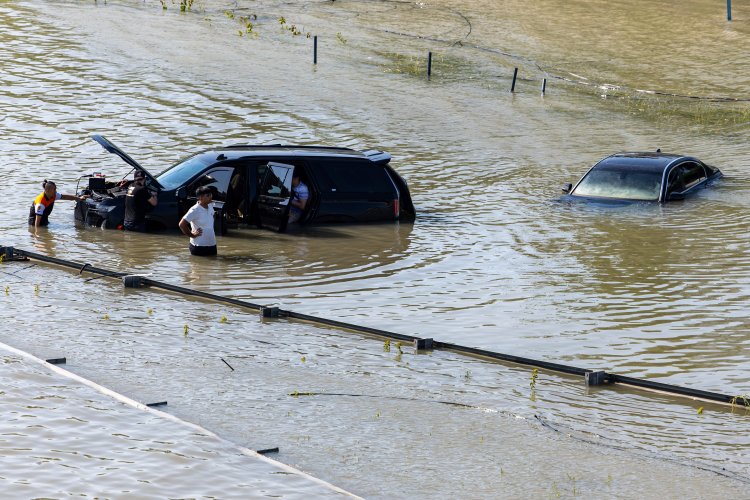Dubai Grapples with Heavy Rains, Flooding Returns

Vehicles navigate flooded streets in Dubai as heavy rains return to the United Arab Emirates just two weeks after record downpours that experts linked to climate change, leading to the closure of schools and many offices in the desert country.
Schools and many offices were closed across the United Arab Emirates as heavy rains returned to the desert country just two weeks after record downpours that experts linked to climate change.
A lightning storm with high winds swept across the oil-rich monarchy overnight, with more than 50 millimeters of rain falling in some areas, the National Center of Meteorology said.
Flooding was seen in some parts of financial hub Dubai, and the city's airport, the world's busiest by international passenger traffic, canceled 13 flights and diverted five, a spokesperson said.
State-owned, Dubai-based Emirates and sister airline flydubai both warned passengers of delays, as schools switched to remote learning and public-sector offices closed.
But the rains were not on the scale of April 16, when a record 259.5 mm of rain left four people dead, blocked major roads for days and forced the cancellation of more than 2,000 flights.
Little traffic was seen on Dubai's normally heaving, six-lane highways, and cars were abandoned on flooded roads near the sprawling Ibn Battuta mall.
Trucks pumping water were stationed in several flooded areas, as Dubai's drainage is often unable to cope with large-scale rainfall.
Last month's downpour, which also killed 21 people in neighboring Oman, was the heaviest in the UAE, a majority-expatriate federation of seven sheikhdoms, since records began in 1949.
World Weather Attribution, a network of scientists that assesses the role of climate change in extreme weather events, found the deluge was "most likely" exacerbated by global warming caused by burning fossil fuels.















